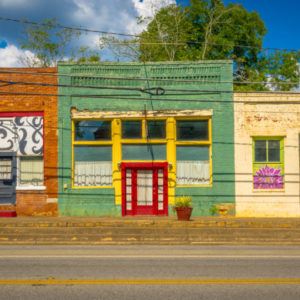Six months after Congress extended relief to businesses with loans through the Small Business Administration, entrepreneurs in rural communities across the country continue to wait.
That is because the Coronavirus Aid, Relief and Economic Security Act did not provide rural businesses with any relief. A substantial number of rural entrepreneurs do not have access to an SBA lender in their community and must borrow from a Department of Agriculture Rural Development program instead.
Unfortunately, Congress did not include USDA loans when they passed the CARES Act in March. Legislation intended to help all Americans instead left rural communities out.
However, thanks to a bipartisan effort launched last month, lawmakers have an opportunity to act as they consider another stimulus package.
Rep. Cindy Axne (D-Iowa) introduced the Rural Equal Aid Act in the House of Representatives with bipartisan support. This proposal would provide six months of principal, interest and payment fee forgiveness to businesses with loans through the Rural Microentrepreneur Assistance Program (RMAP) and the Intermediary Relending Program.
The act also provides relief for loans made to public and nonprofit organizations for community facilities, and to businesses, cooperatives and nonprofits expanding in rural areas.
The proposals in the REA Act would offer support to rural small businesses identical to those already made available to SBA lendees. This concept has broad congressional support. Sen. Jon Tester (D-Mont.) is leading the bipartisan effort for the Senate companion bill.
While the COVID-19 case count may be declining in urban centers, the infection continues to spread at a rapid rate in many rural states. These small businesses are the heart of rural America and they continue to feel the worsening effects of the coronavirus pandemic. While they are doing their best to keep the doors open, many are clearly hurting.
Those businesses in the restaurant, retail and tourist industries are most vulnerable. Already hampered by decreased travel, the lagging economy has hurt rural consumers’ willingness to spend. Many of these entrepreneurs got their start with loans through RMAP.
Similar in design to the SBA Microloan Program, RMAP offers important assistance to rural businesses nationwide. First created in the 2008 farm bill, RMAP allows the USDA to coordinate with Microenterprise Development Organizations that provide training, assistance and lending capital to rural entrepreneurs.
To qualify for a small business loan through an RMAP lender, a business must be in a rural area, unable to access loan capital from other sources, and have 10 or fewer employees.
Since 2008, RMAP has helped more than 2,100 small businesses expand operations, create jobs and tap into new markets. RMAP loans create new businesses in nearly every state and in Puerto Rico, resulting in newfound prosperity for many rural communities. We cannot let the coronavirus erase this progress.
While it is important to act immediately to help rural businesses, a lack of action by Congress could also have long-term consequences for future entrepreneurs and rural communities.
If these businesses close and the nonprofit Microenterprise Development Organization does not receive full payment, these lenders will be unable to continue making loans to rural entrepreneurs. That means the rural entrepreneurs of the future will miss their chance to get started, and the community will suffer as a result.
The REA Act has the potential to change lives for more than 1,000 small-business owners in rural America. We believe these individuals deserve the same opportunity as SBA borrowers, and we should not treat these entrepreneurs differently because their ZIP code is rural.
We encourage lawmakers to act now by addressing this oversight in any forthcoming legislation.

